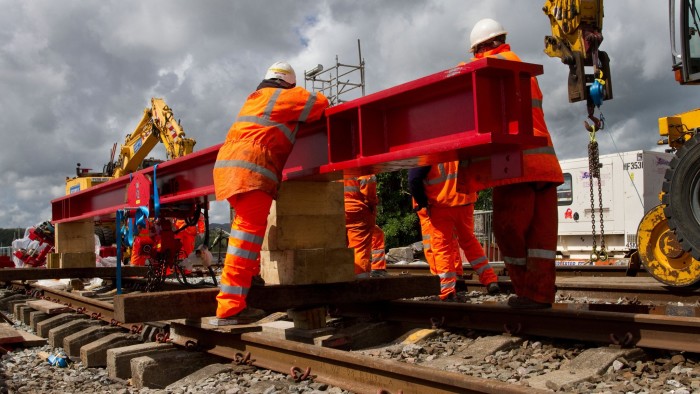Infrastructure decisions are too politicised say investors

Roula Khalaf, Editor of the FT, selects her favourite stories in this weekly newsletter.
Uncertainties caused by political wrangling are deterring major UK-based infrastructure investors from backing local projects.
A study by DLA Piper, the law firm, showed that 70 per cent of investors claimed that they had been put off making infrastructure investments because of politically induced uncertainties and delays. The study described major infrastructure decisions, such as the one over the third runway at Heathrow, as too politicised.
Colin Wilson, the UK head of energy and infrastructure projects at DLA Piper, said the UK had to end the “stop and start” process where a change in political fortunes meant an infrastructure project was abandoned or delayed.
The government plans to spend £460bn on infrastructure in the next few years, including on the HS2 high-speed railway and on improving broadband internet connections.
DLA Piper commissioned a survey of 56 UK-based investors, each with more than £1bn invested in global infrastructure. Forty-seven respondents said the process of deciding on major infrastructure projects was too politicised. The overwhelming majority recommended that the National Infrastructure Commission, a public body, should be given statutory independence to propel projects forward, rather than just issue advice and recommendations.
“If the UK is going to stand on its own two feet . . . investment in infrastructure is going to help secure our position in a post-Brexit world,” said Mr Wilson.
Giving the NIC greater powers did not mean bypassing the democratic process or ignoring the concerns of communities affected by big infrastructure projects, he added.
Improving digital and physical infrastructure is a priority in the government’s industrial strategy and is considered a way to improve the UK’s sluggish productivity. According to the McKinsey Global Institute, Britain needs to spend an extra 0.4 per cent of gross domestic product a year until 2030 to meet its needs.
“The challenge is one can’t . . . override the departmental effective decision-making but what [the NIC] should be pointing to is holding those departments to account,” said Darryl Murphy, head of infrastructure debt at Aviva Investors, which has more than £5bn invested in UK infrastructure debt.
He added that procurement rules — which are set by the UK and the EU — discouraged private-sector innovation by focusing too much on cost over other considerations, which tended to “drive out value” for investors.
MPs voted in parliament last week on the long-running question over whether to agree a third runway at Heathrow airport. The airport’s expansion has been on and off the political agenda for more than a decade and was opposed by the leadership of the Labour party.
The NIC is expected to publish its assessment of the UK’s infrastructure needs for the next 30 years this summer.
Comments